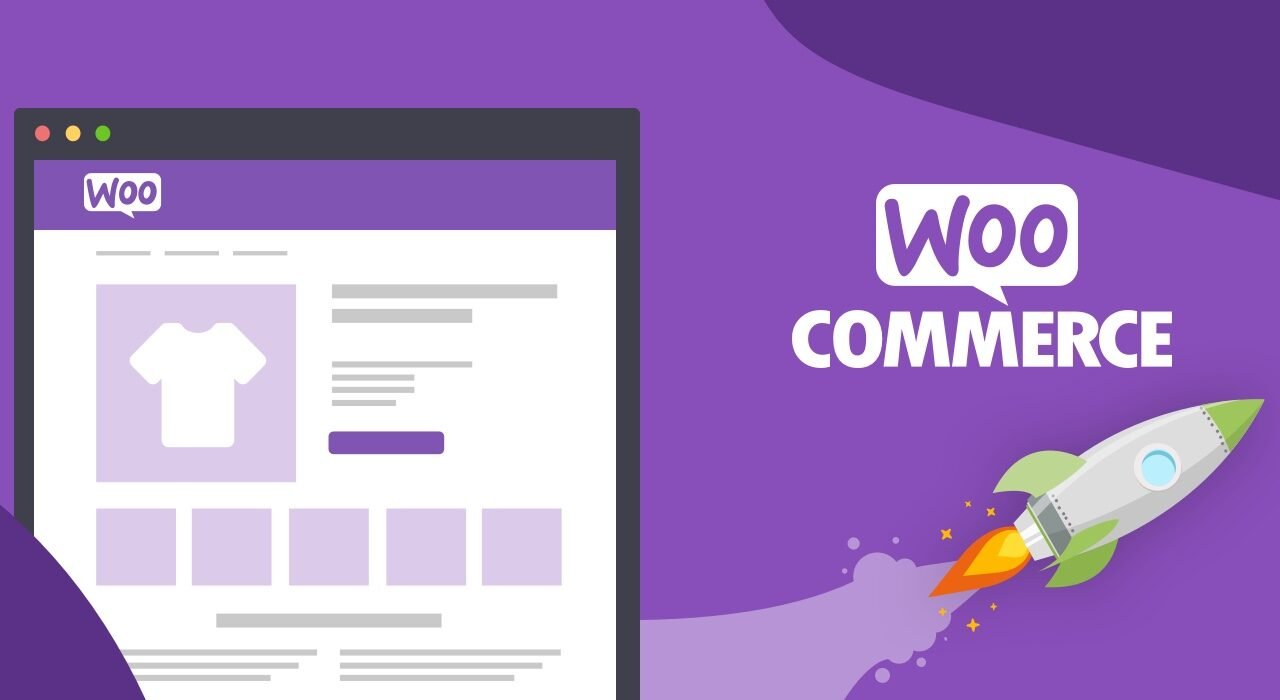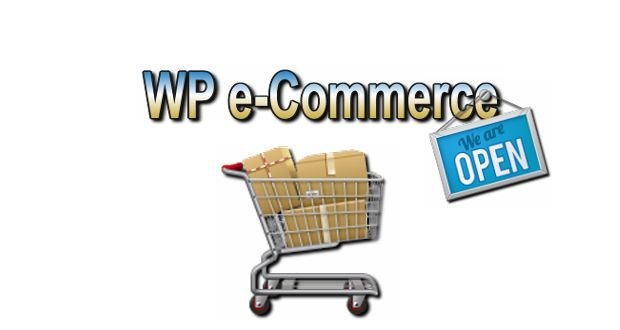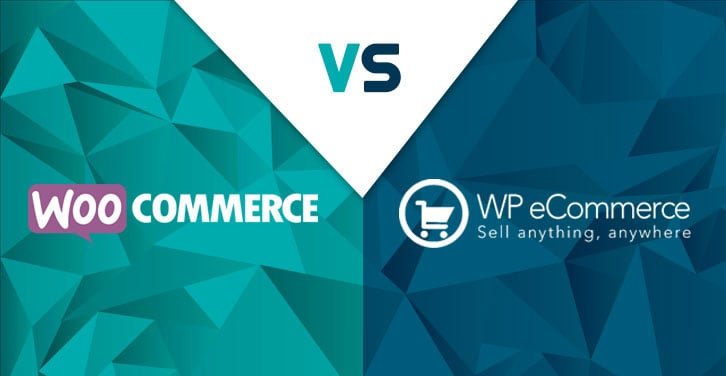Table of Contents
ToggleIntroduction – WooCommerce vs WP eCommerce
When it comes to swiftly integrating e-commerce functionality into your website, the process is as simple as a few clicks to install dedicated plugins, which then handle the bulk of the work. Among the array of choices available, two prominent options stand out: WP eCommerce and WooCommerce. Both plugins are highly regarded, boasting impressive feature sets. The dilemma then arises: which one is the superior choice? To navigate this decision, a comprehensive comparison between WP eCommerce and WooCommerce becomes paramount. By delving into their attributes, a clearer choice can emerge.
Woocommerce

WooCommerce is a robust and widely used e-commerce plugin designed specifically for WordPress websites. With its user-friendly interface and extensive features, WooCommerce empowers users to effortlessly transform their websites into fully functional online stores. Through seamless integration, it offers a diverse range of tools for managing products, payments, shipping, and more. This plugin also boasts a vast library of extensions and themes, ensuring scalability and customization tailored to the unique needs of each business.
WP eCommerce

WP eCommerce is a notable e-commerce plugin crafted for WordPress websites. This plugin facilitates the establishment of online stores with ease, streamlining the process of adding products, managing inventory, and handling transactions. While it offers a straightforward approach to e-commerce, its feature set might not be as extensive as some other solutions. WP eCommerce provides essential tools for selling products online, but users might need to explore third-party plugins or customization to achieve more advanced functionalities.
Comparison of WooCommerce vs WP eCommerce
WooCommerce and WP eCommerce are both popular plugins for WordPress that enable you to set up an online store and sell products. However, there are some differences based on your specific needs and preferences.
1. Ease of Use:
- WooCommerce: It’s known for its user-friendly interface and easy setup process. WooCommerce has a well-designed setup wizard that helps you configure your store quickly.
- WP eCommerce: While it also offers a relatively user-friendly interface, some users might find WooCommerce’s setup and management smoother.
2. Features:
- WooCommerce: It comes with a wide range of features out of the box, including various payment gateways, shipping options, tax settings, product variations, and more. Additionally, you can extend its functionality with numerous free and premium plugins.
- WP eCommerce: Offers essential features like customizable product pages, inventory management, and payment gateways. However, its feature set might not be as extensive as WooCommerce’s without additional plugins.
3. Customization:
- WooCommerce: Provides a highly customizable platform with many themes and plugins available. It’s well-suited for both small and large online stores and can be tailored to fit various business needs.
- WP eCommerce: Offers customization options but might not have as extensive a collection of themes and plugins as WooCommerce. This could impact your ability to create a unique store layout or add specific features.
4. Performance:
- WooCommerce: With proper optimization, WooCommerce can perform well even on large e-commerce sites. However, the performance might depend on the hosting environment, the number of plugins used, and the efficiency of your chosen theme.
- WP eCommerce: Its performance can also be good, but since it might not have as large a user base as WooCommerce, you might need to do more research on its performance and optimization strategies.
5. Community and Support:
- WooCommerce: Benefits from a large and active community due to its popularity. This means you can find a wealth of resources, documentation, and third-party support for troubleshooting and extending functionality.
- WP eCommerce: While it does have a community, it might not be as extensive as WooCommerce’s. This could potentially lead to fewer resources and support options.
Also Reads: How to sell your products and services effectively in WooCommerce Website?
6. Cost:
- WooCommerce: The core WooCommerce plugin is free to use. However, additional costs might arise from purchasing premium themes, extensions, and plugins to add specific functionality.
- WP eCommerce: It also offers a free core plugin, but you might encounter similar additional costs for premium themes and extensions.
Cost Comparison – WooCommerce vs WP eCommerce
Cost comparison between WooCommerce and WP eCommerce, it’s essential to take into account several factors that can influence your budget. Both plugins have certain costs associated with them:
1. Plugin Cost:
- WooCommerce: The core WooCommerce plugin is free to use and install. It provides a solid foundation for building an online store without any upfront cost.
- WP eCommerce: Similar to WooCommerce, the core WP eCommerce plugin is also free. It allows you to set up basic e-commerce functionality on your WordPress site at no initial cost.
2. Extensions and Add-ons:
- WooCommerce: While the core WooCommerce plugin is free, some advanced features and functionalities may require additional paid extensions. These extensions can range from payment gateways to shipping options, product bundles, subscriptions, and more.
- WP eCommerce: Similar to WooCommerce, certain advanced features and integrations may require purchasing premium add-ons. These add-ons can enhance the capabilities of your online store.
3. Themes:
- WooCommerce: You can find numerous free and paid themes that are WooCommerce-compatible. Some premium themes are specifically designed for WooCommerce, offering enhanced e-commerce design and functionality.
- WP eCommerce: Like WooCommerce, WP eCommerce can work with various themes, both free and premium. The cost of themes will depend on your choice and design preferences.
4. Maintenance and Support:
- WooCommerce: As WooCommerce is widely used, you can find ample documentation, forums, and community support resources for troubleshooting and guidance. For more complex issues, you might need to invest in professional assistance.
- WP eCommerce: While there is support available for WP eCommerce, its community might not be as extensive as WooCommerce’s. You might have to rely more on your own research or potentially invest in professional support.
Also Reads: WordPress Ecommerce Website Design With Interactive Look
Which is the better plugin for the user?
Determining the better plugin between WooCommerce and WP eCommerce depends on various factors, including the user’s specific needs, preferences, technical expertise, and business goals. Both plugins have their own strengths and weaknesses. Here’s a general comparison to help you make a decision:
WooCommerce:
Pros:
- Extensive features: Offers a wide range of features out of the box, including product management, various payment gateways, shipping options, tax settings, and more.
- Large community: Benefit from a vast community of users, developers, and resources for support and guidance.
- Customizability: Highly customizable with numerous themes and plugins available to enhance functionality and design.
- Scalability: Suitable for both small and large online stores, making it a versatile choice for growth.
Cons:
- Potentially complex: The plethora of features might be overwhelming for beginners, and some advanced features might require additional paid extensions.
- More resource-intensive: Due to its extensive feature set, WooCommerce might require more server resources and careful optimization for optimal performance.
WP eCommerce:
Pros:
- Simplicity: Offers a straightforward setup process and basic e-commerce functionalities, making it suitable for users who want a simple online store.
- User-friendly: This can be a good choice for users who are new to e-commerce or WordPress.
- Cost-effective: This can be a more budget-friendly option for users who don’t require advanced features or extensive customization.
Cons:
- Limited features: While it provides essential e-commerce tools, it might lack some of the more advanced features found in WooCommerce.
- Smaller community: Resources and support might be more limited compared to WooCommerce due to a smaller user base.
- Customization limitations: It might have fewer themes and plugins available for customization compared to WooCommerce.
Ultimately, it’s recommended to assess your specific requirements, technical comfort level, desired features, and budget to determine which plugin aligns best with your goals.
Conclusion – WooCommerce vs WP eCommerce
In conclusion, the choice between WooCommerce and WP eCommerce hinges on your unique needs and priorities. Each plugin offers distinct advantages and considerations:
WooCommerce:
- Well-suited for businesses of all sizes, from small startups to large enterprises.
- Offers an extensive feature set out of the box, including advanced payment gateways, shipping options, and product variations.
- Thrives in a large, active community with abundant resources and support options.
- Provides high customizability through a wide range of themes and plugins.
- Ideal for those seeking scalability, advanced features, and robust e-commerce capabilities.
WP eCommerce:
- Suitable for users seeking a simpler, straightforward e-commerce solution.
- Best for individuals or small businesses with basic e-commerce needs and a limited budget.
- Offers essential e-commerce functionalities but might lack some advanced features found in WooCommerce.
- Can be advantageous for beginners due to its user-friendly interface and ease of setup.
- A viable choice for those who prioritize simplicity, cost-effectiveness, and a more streamlined approach.
Ultimately, your decision should be based on your business requirements, technical expertise, desired features, and growth plans.
Interesting Reads:
WP eCommerce vs Cart66 Cloud: Best WordPress E-commerce Plugins
Its High Time To Change Old Powerpoint: Morden Software For Presentation
Top 25 eCommerce Statistics For 2023 And How To Take Advantage Of Them In Marketing








